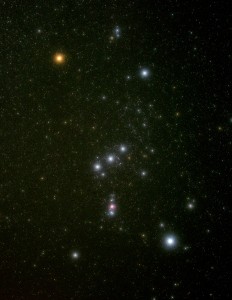Oh sure, trust me to turn a fun Twitter #hashtag into a posting about education. Well, sorry, I filter everything I read and experience through my education filter (or my will-my-kids-have-a-meltdown? filter).
I’ve been reading my tweeps #tweetmy16yearoldself messages on Twitter, thinking to myself, Geez, that kid was way more with it than I was. Like my #spacetweep friend @Zarquil, who tweeted
#TweetYour16YearOldSelf Honestly, you’ve got it all figured out already. Listen to your own heart and don’t put so much reliance on others.
Or my math teacher friend @ptruchon who wrote to himself,
Thanks for spending so much awesome time learning the guitar. I wouldn’t have time now, and I’m still enjoying it. #tweetyour16yearoldself
And then my education friend @janniaragon tweeted something that I’m paraphrasing from memory because the tweet was a couple of days ago and it’s slipped off the timeline.
“slim-leg jeans, black hair with bangs, t-shirt from [somebody’s] concert”
You see, @ptruchon and @Zarquil are tweeting TO their 16 year-old selves, sending a wise message back in time. But @janniaragon is tweeting ABOUT her 16 year-old self, a 140-character snapshot of herself back then. That’s the way I interpreted #tweetyour16yearoldself and I’m wasn’t keen to recall and share those awkward years.
Different people have completely different interpretations of the word “tweetyour16yearoldself”, producing completely different responses. Just like I see in undergraduate physics and astronomy classes every day! The instructor says an important word which sits, in his or her mind, at the pinnacle (or is that “apex”, @ptruchon?) of a pyramid of background knowledge and concepts. But the students interpret the word in a different way and attach none of the background the instructor assumes is there. Or worse yet, attach a different background and then struggle to hang the instructor’s version of the concept on scaffolding that isn’t there.
The biggest offender in my field is “theory”. To astronomers, physicists, scientists in general, “theory” is the pinnacle of science. Why, if you produce even one outstanding theory in your career, you’ve made a valuable contribution to the field. But to students, “theory” is often a vague guess, a stab-in-the-dark. Actually, let me quote from a new astronomy textbook, “Investigating Astronomy – A Conceptual View of the Universe” (W.H. Freeman and Co, coming soon) by @caperteam and @rogerfreedman. They say it much better than I can:
In everyday language the word “theory” is often used to mean an idea that looks good on paper, but has little to do with reality. In science, however, a good theory is one that explains reality and that can be applied to explain new observations.
It’s all about interpretation. Instructors, be sure to share the pyramid of background knowledge behind key words when you use them. And students, interrupt your instructor and ask, “What do you mean by that, again?”

